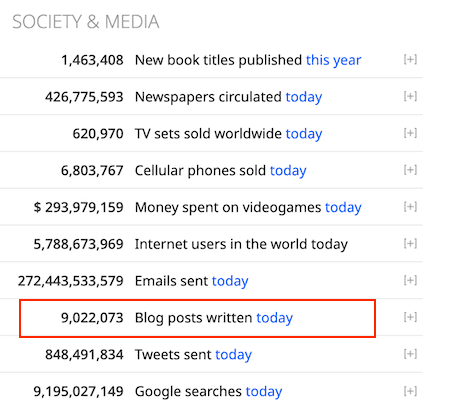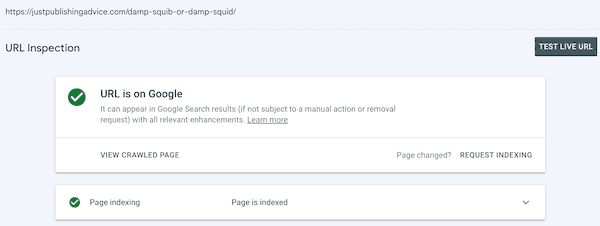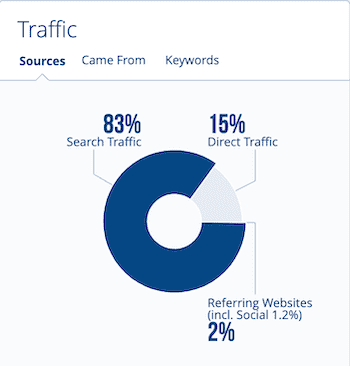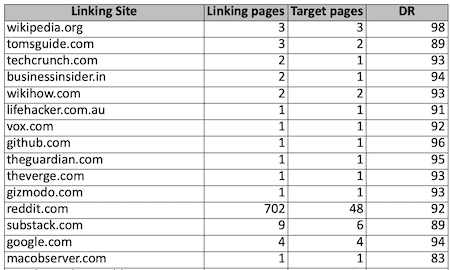
Experience and expertise are two of the most essential factors in writing authoritative articles.
Readers are always searching for information from reliable and reputable sources, so how can you satisfy them?
The best way is to share your knowledge, skills, opinions, and conclusions about your niche topic.
When you write expert, in-depth, and balanced articles that cover all aspects of a subject, they not only attract readers but also tend to rank well on search engines.
What is experience and expertise?
The two words regularly coexist now because Google Search refers to them in its quality rater guidelines.
Originally, the acronym E-A-T meant expertise, authoritativeness, and trustworthiness.
But now, it is extended to E-E-A-T, which adds the word experience to the acronym.
In simple terms, expertise means that any article you write should demonstrate that you are an expert in your field.
As for experience, you need to prove that you have been there, tried it, used it, or done it.
Every day, millions of articles and blog posts are published on the Internet.

As you can see, you are not alone in writing and publishing articles. I took this screenshot at 10 pm, so the total daily number is slightly higher.
How do you rise above the pack?
By applying your experience, know-how, and expert advice to your articles.
Here are some ideas to help you.
Write about what you know

I remember my grandmother often using the expression; know your knitting.
It was her version of the old idiom: stick to the knitting. It’s good advice for article writers because it can apply to writing about what you know how to do.
Yes, it can be tempting to venture off to topics you know little about because you think they are popular.
But without any expertise or experience, I know I would fail if I wrote an article about investing in real estate.
You can’t know about everything, so stick to your topic and area of expertise.
The first half of my working life was in printing and publishing, and the second half; English teaching.
But across my changes in professions, I have always written.
In my teenage years, it was song lyrics. Later, I was attracted to writing poetry and short stories, and then to writing novels.
I write articles about writing, grammar, and publishing because these are my three areas of expertise.
Whatever topic or subject you write about in your articles, stick closely to what you know.
Sure, the advent of AI writing makes it tempting to write about any topic under the sun.
But it’s not a clever strategy because anything written by AI will always fail to show any meaningful experience.
The best advice is to only write about what you know in your own words.
Invest time in your articles

Writing the words is only one part of creating great articles.
No matter how many words you use, it can sometimes be the quickest part of the task.
But before you write a word, you need to spend time researching all aspects of your topic to ensure you cover everything in depth.
Then comes the planning stage of getting your ideas into a logical order.
Once you write your first draft, you need to check that it is not only well-structured, clear, and accurate but also engaging for your readers.
Of course, you have to check it thoroughly for any grammar and spelling errors or accidental typos.
Then it takes more time to format your text and add images, graphs, or tables, screenshots, or videos to enhance your article.
The last task is careful and attentive proofreading.
It could take you four hours or four days to write and perfect a new article.
But don’t judge or measure your work by time. It’s only the quality of the result that counts.
Add something new to your content
How can you say something new when millions of articles are being published every day?
When you use Google Search to research a topic, you’ll often find so many articles and blog posts repeating the same phrases, ideas, and conclusions.
The best way to add new, original, or unique information is to personalize it using your experience.
If you are writing a review article about a new product or app, you probably talk a lot about specifications and prices.
But what about whether you like the color, size, or how it looks aesthetically?
For an article about proofreading, perhaps add a few sentences about eye strain and loss of concentration.
You can always find a new angle or two to make your article more authentic and engaging for readers.
Agree with other experts
Validating your thoughts, ideas, or conclusions with references or quotes from authoritative sources in your field adds credibility to your articles.
You can also use external sources to give additional or extended information to your readers.
Not only is it useful for readers, but it can also help you build trust or develop relationships with your peers.
Many article writers and bloggers take careful note of the backlinks or citations they receive.
Finding quality sources to reference is always time well spent when preparing a new article.
Add sources to your research
For any external information you use in an article, add a citation or credit link.
When you use a source for facts, statistics, data, quotes, or ideas, add a source link or an embedded text link.
Not only are you giving credit where it is due, but appropriate links can also help you avoid any possible plagiarism issues.
When planning a new article, I often look for statistics or data. However, many articles present numbers and data without providing a way to verify their validity or source.
It can take some time, but I only reference sites that can back up their claims.
You want reliable information, so give your readers the same possibility.
When you do, you are not diminishing your authority. You are enhancing it because you are providing authoritative information.

One of the easiest ways to highlight your experience and expertise is to add an author box at the end of all your articles.
It’s not only good for your readers, but it’s also an easy way to allow Google Search to check your author profile.
Author boxes typically include a profile image and a short text, and possibly one or two social media links.
Even though it will only be about 20-30 words, when you write your bio text, make sure you include references to your area of expertise and possibly your experience.
If you publish articles on other platforms, make sure you add your author bio after your content.
Another way to improve your author credibility is to have an About Page on your blog or site.
The advantage is that you can use a lot more words to highlight your credentials as a writer. One tip is to add this page to the main menu of your site.
Then Google Search will see the link on every page of your site.
Readers and search engines learn to trust you
Google’s mantra of experience, expertise, authoritativeness, and trustworthiness for article and content writers is not easy to accomplish.
But it’s a logical set of four words to describe great content that readers will appreciate.
I’m not an SEO expert, but I assume there are parameters that apply more to a site overall than to individual articles.
In other words, a site that publishes terrific content regularly will have a higher chance of being indexed and ranking higher.
I only base this assumption on the fact that whenever I publish a new article, Google indexes it within a couple of hours.
Here’s the notification I received earlier today, less than an hour after publishing a new article.

That’s not always the case for many sites, so it could mean that Google is trusting my site to add quality content.
If you see many of your articles listed as “Crawled – Currently Not Indexed” in Google Search Console, it could mean that you have issues with low quality, duplicate content, or poor website architecture.
One other trust statistic I always take notice of is returning visitors or direct traffic.

Yes, organic traffic from search engines is always the primary source for most sites.
But when you see a healthy percentage of direct traffic from returning visitors, it’s a good indication that these readers have trust in the information you are providing.
Of Google’s four rating factors, this one is the most difficult to define and measure.
I have to admit that I fail to understand how it works in practice, and I don’t think I’m alone.
You have probably read about domain rank (DR) or ratings. But according to John Mueller from Google, it doesn’t use any measure like this.
“In general, Google doesn’t evaluate a site’s authority. So it’s not something where we would give you a score on authority and say this is the general score for authority on your website. That’s not something we would be applying here.” Source SEJ
But Google’s Search Quality Guidelines mention some factors related to the reputation of a website.
News articles, Wikipedia articles, blog posts, magazine articles, forum discussions, and ratings from independent organizations can all be great sources of reputation information.
However, it’s a commonly held belief in SEO circles that backlinks help provide authority for a site.
If you publish great content, over time, you will gain backlinks to your articles. In this respect, I have been fortunate to gain links from some well-known sites. Here’s a sample.

The interesting site on the list for me is Reddit. I’ve never posted on it, and I’m not sure I even have an account, so the activity is surprising but welcome.
Yes, I’m missing a link from The New York Times, but you never know.
Backlink counts vary greatly between tools like Semrush, Ahrefs, Ubersuggest, Moz, and Google Search Console.
One tool says my site has 59,700 backlinks, but another says 18,100.
None of these tools is particularly accurate, so all you can do is look for positive trends.
One interesting note is how Bing Search describes authority. It’s a little clearer than Google.
When we evaluate the page with regard to authority, we’re trying to answer the question, “Can we trust this content, its author, or the website?” In addition to understanding the web anchor graph, a variety of factors are used to establish and determine the authority of a page. These include signals from social networks, cited sources, name recognition and the author’s identity.
The key takeaway from this information is that positive signals of authority for your articles or site can come from various sources, but it may take some time to yield results.
Summary
Becoming recognized as a reliable source of quality information by readers and search engines takes time.
But when you are writing new articles or updating content, applying your experience and expertise is your best way forward.
They are the only two factors of Google’s E-E-A-T that you can control, so use them.
When you do it consistently, the authority and trust of your site and articles will improve over time.
Related Reading: 10 Easy Ways To Find New Topic Ideas For Articles
Share This Article


